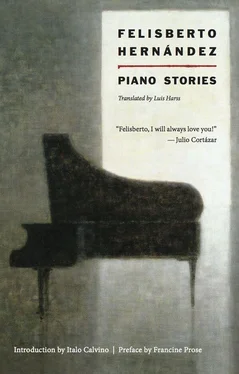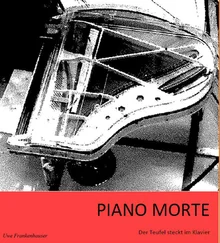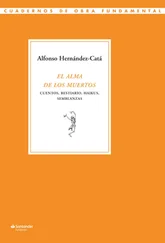Felisberto Hernandez - Piano Stories
Здесь есть возможность читать онлайн «Felisberto Hernandez - Piano Stories» весь текст электронной книги совершенно бесплатно (целиком полную версию без сокращений). В некоторых случаях можно слушать аудио, скачать через торрент в формате fb2 и присутствует краткое содержание. Год выпуска: 2014, Издательство: New Directions, Жанр: Современная проза, на английском языке. Описание произведения, (предисловие) а так же отзывы посетителей доступны на портале библиотеки ЛибКат.
- Название:Piano Stories
- Автор:
- Издательство:New Directions
- Жанр:
- Год:2014
- ISBN:нет данных
- Рейтинг книги:4 / 5. Голосов: 1
-
Избранное:Добавить в избранное
- Отзывы:
-
Ваша оценка:
- 80
- 1
- 2
- 3
- 4
- 5
Piano Stories: краткое содержание, описание и аннотация
Предлагаем к чтению аннотацию, описание, краткое содержание или предисловие (зависит от того, что написал сам автор книги «Piano Stories»). Если вы не нашли необходимую информацию о книге — напишите в комментариях, мы постараемся отыскать её.
Piano Stories
Piano Stories — читать онлайн бесплатно полную книгу (весь текст) целиком
Ниже представлен текст книги, разбитый по страницам. Система сохранения места последней прочитанной страницы, позволяет с удобством читать онлайн бесплатно книгу «Piano Stories», без необходимости каждый раз заново искать на чём Вы остановились. Поставьте закладку, и сможете в любой момент перейти на страницу, на которой закончили чтение.
Интервал:
Закладка:
Now I didn’t care what my friends would say or how hard my old girlfriends would laugh at me: I was like a planet orbiting Miss Margaret, attracted to her by the same force with which she held me at a distance, at once remote and strangely sublime. But my flock kept asking me for the first Miss Margaret, the uncomplicated one, without a husband, before I had gotten to know her, when I could still imagine anything I wanted about her. I can’t say what other thoughts were caught in the mosquito net, which vanished when I fell asleep.
The next morning Miss Margaret rang me on the phone to tell me, “Please go back to Buenos Aires for a few days. I’m having the house cleaned and I don’t want you to see me without my water.” She named the hotel she had reserved for me. She would let me know when I could return.
The invitation to leave set off a jealous reflex in me — first panic, then sadness. The sadness was like a heavy package that I took with me, knowing that as soon as I calmed down I would feel the stupid urge to unwrap it and examine it more closely. By the time I caught the train, I had as little hope that Miss Margaret would love me as she probably had that her husband might still be alive when she took the train to Italy. It was another time and another train, but my longing to have something in common with her made me think: “We’ve both suffered on the noisy wheels of trains.” But the coincidence was as tenuous as if I had guessed only one of the digits of a winning lottery number. I lacked Miss Margaret’s gift for finding miraculous waters, nor would I seek comfort in religion. Just the night before, I had been untrue to my own faithful, because even while they were trying to lead me back to the first Miss Margaret I had been summoning up out of the depths of the swamp other faithful that gaped at her spellbound, like bugs drunk on moonlight. The fact was that my sadness took a poet’s pride in itself and in the sense of easy well-being it got from feeling unloved and misunderstood. I was the temporary meeting place where my ancestors flowed lazily into my descendants. My two sets of grandparents had been very different, and avowed enemies, but they had sworn off fighting while they passed through my life, which they had chosen to spend in more restful ways, wandering idly without ever meeting, like sleepwalkers in different dreams, and I tried not to provoke them, although if they had met and quarreled I would have preferred the fight to be short and deadly.
In Buenos Aires I had a hard time finding quiet spots where Hector could not reach me. (He would have loved to have some juicy details to add to his spiteful portrait of Miss Margaret.) I was also in a quandary trying to sort out my two Miss Margarets, hesitating between them, as if unable to decide which of two sisters to prefer and which to betray, or how to fuse them so I could love them both at the same time. What bothered me above all was being allowed only the most innocent thoughts with regard to the later Miss Margaret. My idea was to indulge all her fantasies from now on so she would confuse me with her memories of her husband and I could end up supplanting him.
I received the order to return on a windy day and set out at breakneck speed. But the wind that day seemed secretly determined to blow against time, making humans, trains, and everything else move with agonizing slowness. I was the only one to realize this as the trip dragged out endlessly. When I reached the flooded house it was Mary who was waiting for me at the pier. She would not let me row and said that on the very day I had left, before the water was let out, there had been two accidents. First the boatman’s wife, Dotty, had turned up, asking Miss Margaret to take her back. She had been fired not only for dumping bread in the water but because she had been caught trying to seduce Hector one of the times he had visited the house early in the summer. Without a word, Miss Margaret had pushed her away and she had fallen into the water. Crying and dripping wet, she had left for good, taking her husband with her. Later that same evening, pulling on the cord with which she drew the dresser up to her bed (the furniture in her bedroom floated on inner tubes like the ones children swim in at the beach), Miss Margaret had spilled a bottle of liquor on a heater she used for warming some cosmetics and the dresser had caught fire. She had called over the phone for water, “as if there weren’t enough of it in the room or it weren’t the same water as in the rest of the house,” Mary said.
The morning after my return was bright and clear, and fresh plants had been brought in. But I was jealous of the changes: they meant Miss Margaret and I would not find our words and thoughts as we had left them under the branches.
After a few days she returned to her story. That night, as on other occasions, a plank had been laid across the water of the entrance hall. When I reached the foot of the stairs Miss Margaret signaled me to stop — and then to follow her. We went all the way around the lake on the narrow walk. Meantime, she was telling me that she had left the town in Italy thinking that water was the same everywhere in the world, but that it had not turned out that way, and more than once she had been forced to shut her eyes and plug her ears with her fingers in order to be with her own water. After a stop in Spain, where an architect had sold her the plans for a flooded house — she gave me no details — she had taken a ship home. The ship was overcrowded, and as soon as she lost sight of land she had realized the water of the ocean was not her water, there were too many unknown beings lurking in its depths. She went on to say there were people on board who spoke of shipwrecks and seemed to dread the water when they gazed into its immensity — which did not prevent them from drawing small amounts of it to fill a bathtub and delivering their naked bodies to it. They also enjoyed going down into the boiler room, where torturing flames made the trapped water writhe furiously. On days of rough seas Miss Margaret lay in her cabin with newspapers and magazines, following rows of letters with her eyes as if they were ant trails or watching a bit of water swish in a jug with a narrow neck. Here she interrupted her story and I noticed she was rocking like a boat. Several times we had been out of step, our bodies swaying in different directions, and I’d had to strain to catch her words, which seemed to blow past in uneven gusts. When we got back to the entrance hall she stopped at the plank, as if afraid of crossing over it, and asked me to fetch the boat. I had to row her around for quite a while before she let out her hoarse sigh and spoke again. Finally she told me she’d had a moment with her soul on the high seas. It happened when she was leaning over the rail, gazing into the quiet deep, which was like an endless skin only faintly disturbed by rippling muscles: she began to have crazy ideas, the kind that come to you in dreams. She imagined that she could walk on the water but was afraid a porpoise would surface, and that she would trip on it and really sink this time. Suddenly she became aware of the drops of sweet water that had been falling on the salty ocean from the sky for the past few seconds. Many of the drops were bunching together and landing on deck in a heavy downpour, battering the ship as if it were under attack. In a moment the whole deck was awash. Miss Margaret looked out at the ocean again: it was taking in the rain and swallowing it as naturally as an animal swallowing another animal. She had only a vague sense of what was happening, when suddenly she shook with laughter. It racked her body before it reached her face, spreading like an earthquake with no known cause. As if to justify it in some way, she said to herself: “It must be some little girl making a mistake — instead of raining on land, she’s raining on water.” For a moment she sensed how sweet it must be for the ocean to receive the rain, but on her way back down to her cabin, balancing her huge body, she remembered her vision of water swallowing water and felt certain the girl was going toward her death. Then the sweetness became a heavy sadness and she went straight to bed for a long nap. At this point Miss Margaret ended her story for the night and ordered me back to my room.
Читать дальшеИнтервал:
Закладка:
Похожие книги на «Piano Stories»
Представляем Вашему вниманию похожие книги на «Piano Stories» списком для выбора. Мы отобрали схожую по названию и смыслу литературу в надежде предоставить читателям больше вариантов отыскать новые, интересные, ещё непрочитанные произведения.
Обсуждение, отзывы о книге «Piano Stories» и просто собственные мнения читателей. Оставьте ваши комментарии, напишите, что Вы думаете о произведении, его смысле или главных героях. Укажите что конкретно понравилось, а что нет, и почему Вы так считаете.












